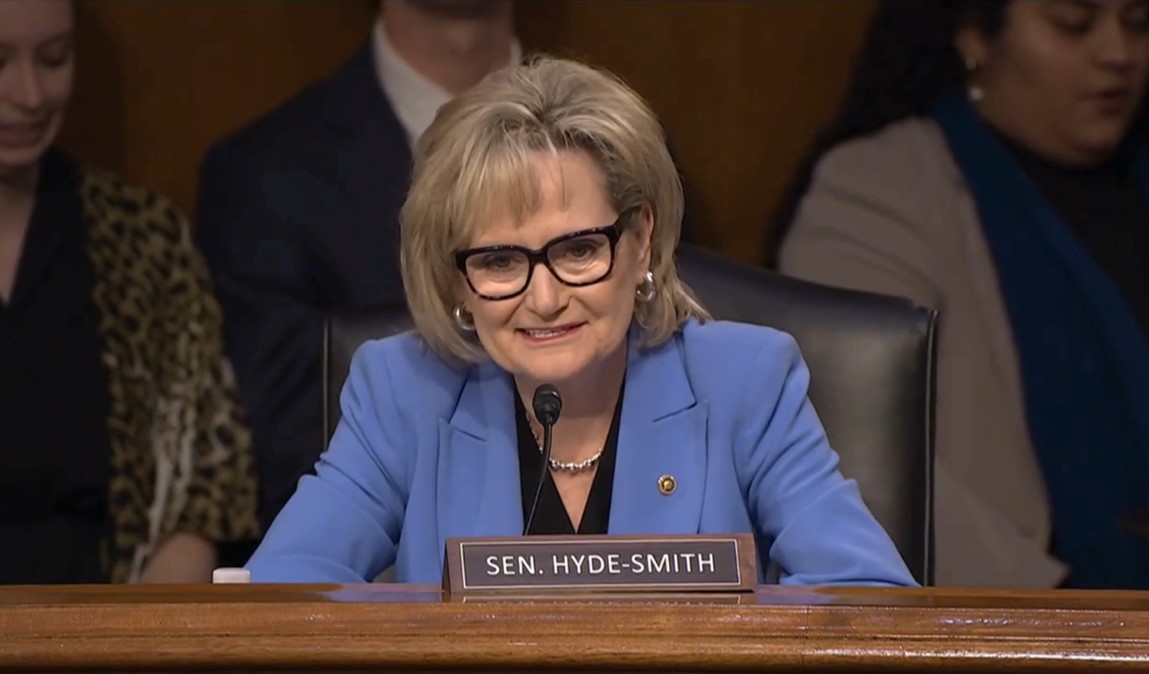HYDE-SMITH, AG COMMITTEE BEGIN WORK TO WRITE NEW FARM BILL
Hyde-Smith Pushes for Stronger Commodity Safety Net to Overcome Farm Crisis

VIDEO: Senator Hyde-Smith Stresses Need to Invest in Commodity Safety Net in New Farm Bill.
VIDEO: Senator Hyde-Smith and Farm Bureau President Duvall Discuss the Importance of Protecting Access to Crop Protection Tools and Biotechnology Products.
WASHINGTON, D.C. – U.S. Senator Cindy Hyde-Smith (R-Miss.) today landed solidly on the side of farmers and ranchers who testified to the need for Congress to act sooner rather than later to strengthen the commodity safety net in a new Farm Bill.
The Senate Agriculture Committee on Wednesday launched the process for writing a new Farm Bill by getting insights on the challenges facing farmers and ranchers who are still operating under outdated 2018 Farm Bill policies. The hearing, Perspectives from the Field: Farmer and Rancher Views on the Agricultural Economy, Part 1, is the first in a series planned by the committee.
“Input costs are through the roof while crop prices are lower than they were 15 years ago. The federal farm safety net is not providing adequate support to keep our farmers and ranchers afloat. I have certainly been pulling the alarm on this because I know the seriousness of this. Because of this, producers across the country are going out of business. In short, U.S. agriculture is just in trouble,” Hyde-Smith said.
“When farms are in trouble, so are the banks, the retailers, the equipment dealerships, grain buyers, gins, textile mills, transportation businesses – among the many others up and down the supply chain,” Hyde-Smith explained. “Rural America is definitely in a crisis mode partly because Congress has yet to come to terms with the fact that commodity support programs under title I of the Farm Bill are inadequate.”
To stress the inadequacy of the existing commodity safety net under the 2018 Farm Bill, Hyde-Smith pointed out that the Title I safety net that covers price and income support for commodities amounts to only about 5 percent of the Farm Bill base.
Zippy Duvall, president of the American Farm Bureau Federation, agreed with Hyde-Smith that Title I “deserves significant improvement and investment” in a new Farm Bill, which should be done “as soon as possible to prevent today’s problems from getting worse.”
Separately, Hyde-Smith and Duvall also agreed on the importance of “sound, risk-based science” to develop and regulate crop protection tools and biotechnology products used by farmers to maximize yields.
“Without these, Mississippi farmers and farmers in all the states that are represented here today can’t produce viable crops,” Hyde-Smith said. “Farmers in the South are subject to some of the most notorious insects and weeds in the whole world, and they have to overcome what was once considered impossible, thanks to these scientific innovations.”
###
